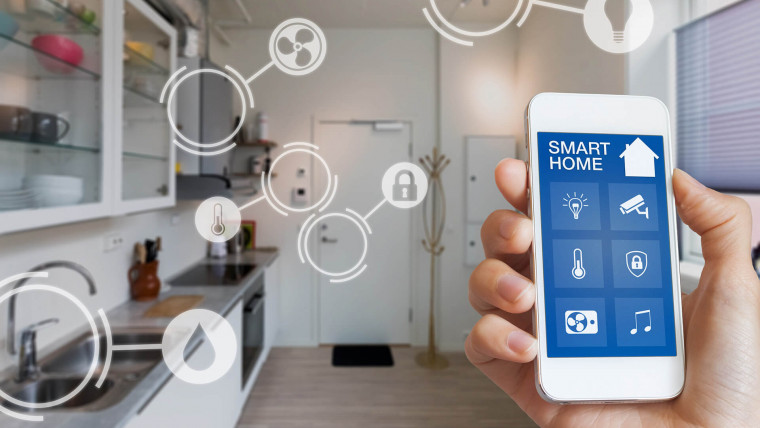– Sunil Mishra, Chief Strategy Officer
Software as a service is now the key tool for developers to reduce unsold housing inventory

Sunil Mishra, Head – Strategy, ANAROCK Group & CEO – TRESPECT Property Consultants
With COVID-19, real estate developers in India are suddenly faced with the need to rapidly adopt technology to get property sales going. ANAROCK research indicates that while homebuyer enquiries have increased by more than 50% post the nationwide lockdowns, a large part of these enquiries are generated online.
This is unlikely to change soon – though homebuyers are back on the market, social distancing and overall safety concerns are still very much in place. A lot of the property discovery journey has now gone online, and developers who do not use technology to harness and convert online enquiries are at a disadvantage.
Fortunately, like many other functions these days, the technology and professional support they need can be outsourced to specialists. Enter Software as a Service, or SaaS.
SaaS and Real Estate
Customer Relationship Management SaaS is the key for real estate companies who want to leverage advanced software technology to drive their business. Previously, Indian real estate developers seeking a tech advantage in their business had to rely on mainstream software giants who don’t understand completely the specific requirements of the Indian real estate business.
Today, they have the option of an integrated Customer Relationship Management delivered through Software as a Service solution – or SaaS, as it is now commonly referred to – created and managed by tech-driven real estate consultancies. In contrast to multi-modal, multinational system management services which handle a diverse number of business types, Indian real estate SaaS providers deliver integrated software solutions – customized not only to Indian real estate environment but also to individual players.
Though quite complicated at the coding and delivery end, a SaaS approach does not involve any single software platform which has to be adapted to a certain business type. Instead, it integrates several smaller software solutions into one platform.
SaaS – Focused Results
- Vastly superior leads from both online and site visits, and automatically routes them to the pertinent sales manager
- Elimination of the superfluous call centre approach to servicing customers. Instead, a SaaS system analyses the enquiry as well as the buyer profile and automatically determines how and when the customer prefers to be reached. At the appropriate time, the buyer is contacted by a fully empowered and trained sales representative who will carry out all levels of interaction from enquiry to home purchase
- Relevant and exhaustive information on the project or property in question is instantly shared online on-demand. This results in zero-gap communication which leads to faster deal closure
- The senior sales people at the developer retain complete online oversight of every event from enquiry to processing and can be instantly involved in a discussion if required
- Likewise, the developer has perpetual online access to channel partners involved in the project, their performance and work in progress by each operative
- Time-consuming data entry is eliminated with the help of intuitive artificial intelligence (AI) which automatically records all relevant data in the appropriate systems. This information can be quickly retrieved at the click of a mouse.
- The system not only maintains a detailed track-record of ongoing marketing activities along with expenses and results but also suggests more effective marketing interventions based on location, majority buyer profiles and market conditions
The SaaS model eliminates the need to spend large amounts of capital on enterprise-level services. It combines the efficiency of advanced software appropriate human involvement and provides a results-oriented approach to achieving and monitoring specific business goals for the business.
How SaaS Helps Homebuyers
Though highly technical at the DNA level, the purpose of software-based services is to deliver a more streamlined, satisfying experience to end-users. At its core, SaaS is a Customer Relationship Management software which makes all communication relevant – customers get only the information which makes sense to them. Superfluous information is eliminated. Further, the system pushes multiple alerts and reminders to sales managers for meetings and site visits, who then connect with the home-buyers on-time. every time, as per the stage of home-buying process.
Finally, the SaaS system also escalates discussions to senior sales managers if the ball gets dropped by their teams. For customers, this ensures access to the senior management if and when required.
Why Current Tech Solutions for Real Estate Fail
For the Indian real estate industry, the time for a SaaS approach had come long before the COVID-19 pandemic. While many real estate developers had adopted technology at some level, they were spending disproportionately on enterprise-level software services.
To make things worse, these services are usually provided by sector-agnostic software companies who apply a generic approach to all their clients within the purview of annual contracts
Also, the ‘monolith’ level of technology solutions that most software giants offer lacks scalability. Their inherent unwieldiness makes them unsuitable for adaptation to different sizes of businesses. What a real estate developer will usually wind up with is a massive software overkill requiring large in-house or off-site teams – usually of the software provider himself – to manage them.
SaaS, on the other hand, takes the onus from developers and puts it on the contracted tech firm. They get the flexibility and freedom to use high-end and customizable bespoke technology at a fixed annual fee.
COVID-19 Kick-starts Indian Real Estate’s Tech Revolution
For the Indian real estate industry, the time for adopting a SaaS approach to their business is now at hand. The COVID-19 pandemic and its unique compulsions have rendered the traditional marketing approach obsolete. What developers need now is a dynamic technology-based approach geared to their businesses.
Indian real estate players are currently grappling with unprecedented unsold inventory levels in a completely transformed marketplace. ANAROCK’s latest data indicates that there are as many as 6.33 lakh unsold homes in various stages of completion across the country’s major cities. Developers need to speed up sales and need solutions that be deployed rapidly and cost-effectively.
In the current market conditions, Indian real estate players are not only stretched for time and bandwidth – but they can also not afford massive capital outlays for services whose results they cannot effectively monitor or confirm.
By adopting SaaS, real estate developers can immediately stop over-spending and being diverted from their core area of business. They benefit from a technology platform that efficiently boosts project sales and simultaneously monitors all sales activity in real-time.
When SaaS is ‘done right’ in terms of scalability and adaptability, it becomes a major enabler for developers regardless of their size and market bandwidth, and irrespective of whether or not they possess the ability, knowledge or skill to develop their own tech-driven sales tools







